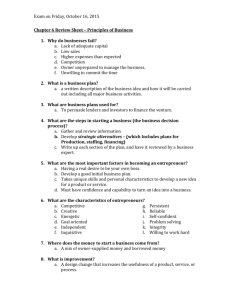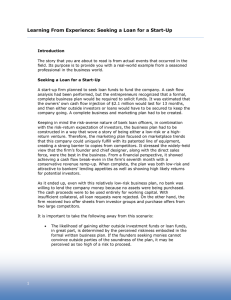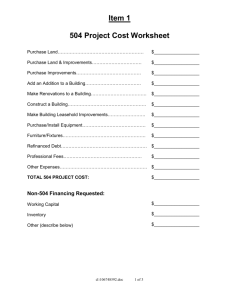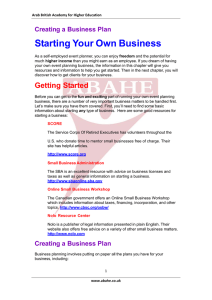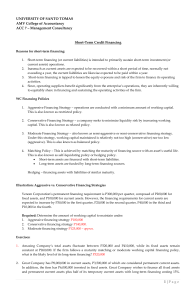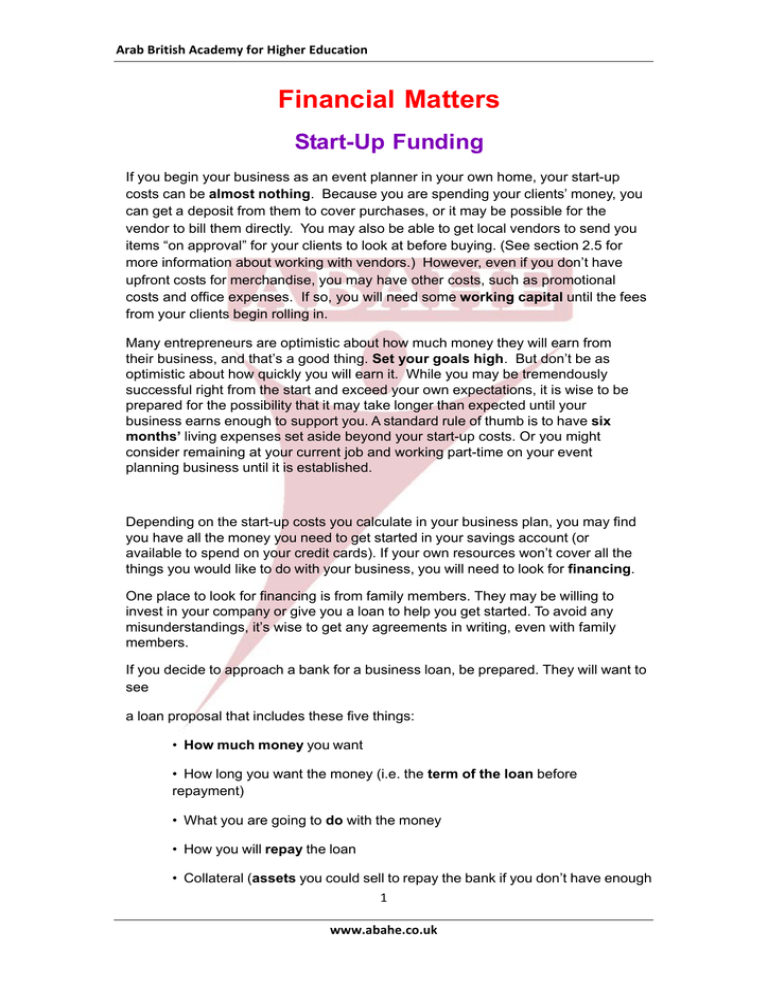
Arab British Academy for Higher Education Financial Matters
Start-Up Funding
If you begin your business as an event planner in your own home, your start-up
costs can be almost nothing. Because you are spending your clients’ money, you
can get a deposit from them to cover purchases, or it may be possible for the
vendor to bill them directly. You may also be able to get local vendors to send you
items “on approval” for your clients to look at before buying. (See section 2.5 for
more information about working with vendors.) However, even if you don’t have
upfront costs for merchandise, you may have other costs, such as promotional
costs and office expenses. If so, you will need some working capital until the fees
from your clients begin rolling in.
Many entrepreneurs are optimistic about how much money they will earn from
their business, and that’s a good thing. Set your goals high. But don’t be as
optimistic about how quickly you will earn it. While you may be tremendously
successful right from the start and exceed your own expectations, it is wise to be
prepared for the possibility that it may take longer than expected until your
business earns enough to support you. A standard rule of thumb is to have six
months’ living expenses set aside beyond your start-up costs. Or you might
consider remaining at your current job and working part-time on your event
planning business until it is established.
Depending on the start-up costs you calculate in your business plan, you may find
you have all the money you need to get started in your savings account (or
available to spend on your credit cards). If your own resources won’t cover all the
things you would like to do with your business, you will need to look for financing.
One place to look for financing is from family members. They may be willing to
invest in your company or give you a loan to help you get started. To avoid any
misunderstandings, it’s wise to get any agreements in writing, even with family
members.
If you decide to approach a bank for a business loan, be prepared. They will want to
see
a loan proposal that includes these five things:
• How much money you want
• How long you want the money (i.e. the term of the loan before
repayment)
• What you are going to do with the money
• How you will repay the loan
• Collateral (assets you could sell to repay the bank if you don’t have enough
1 www.abahe.co.uk Arab British Academy for Higher Education money to make the payments)
When you prepare this document, ask for a little more money than you need. No
matter how good their business plan is, most people underestimate the amount of
money they need. It is very difficult to go back to the bank and get more money
when you’ve just gotten some. So get all you need at once, even if it seems like a
little more than you need.
You can find some additional advice about financing at:
SBA – Finding the Money You Need
http://www.sba.gov/financing/index.html
Nolo Resource Center
Click on Business and Human Resources, then on Starting a
Business, then on Financing Your Business
http://www.nolo.com
All Rights Reserved © Arab British Academy for Higher Education 2 www.abahe.co.uk




